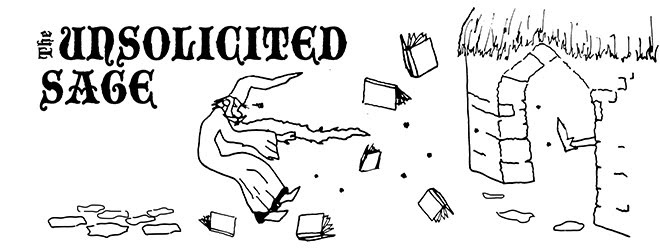Burn out can arise from a couple of different factors. To make sure I'm not misunderstood, I want to preface this with the assertion that these factors are *never* the DM's fault, or the players' fault. But both can contribute to avoiding burn out. The two factors that often lead to burn out?
- Monotony
- Disillusionment
I've definitely experienced the first sub-factor in my Monday night game. My muddled construction of my character has left me with two very distinct sets of options depending on whether I engage in melee or stay at range. The limitations of these two sets of options means that once I've decided to close for melee, or I stay at range, my actions are somewhat predetermined. This can make every fight feel like a chore rather than an exciting challenge to be overcome through wit and ingenuity.
The second sub-factor also seems to be arising in my game occasionally. I have, in previous posts, spoken quite highly of my DM, and I'd hate for you (or him!) to think that I don't appreciate the difficulties of his job. But lately, perhaps because we are using a Wizards published adventure, or perhaps because of other factors I can't see in his personal or professional life, it is apparent that less preparation has gone into our sessions. This signals the players, consciously or unconsciously, that the material doesn't matter. When we search a hut and discover a "16th level magic item" instead of a pair of "Planewalker Boots," we sort of disconnect. The verisimilitude tears and we find ourselves thinking about what character we'd play in a new campaign, or whether we left the toaster on at home.
The third sub-factor is, in some ways, a rehash of the previous two from a slightly different perspective. In my Monday night game, we've been playing through Revenge of the Giants by Wizards of the Coast. I can tell you, with certainty, that I am getting sick to death of giants. I have too many powers the require allies to be adjacent to the enemy for the effect to be valuable. Giants have reach, which means that I spend a lot of time thinking about how useless most of my powers are because the giants refuse to let my allies stay adjacent.
Disillusionment really is a general catch-all for the guys in the group who are finding out that at higher levels, their character doesn't do what they thought they would. The bard who is having trouble coming to grips with his role as healer, the rogue who wants to do more than just deal gobs of damage, the Jedi who wants to spend his rounds doing something other than resolving the five Deflect rolls against the stormtroopers' blaster fire.
So, with such complex and pervasive factors leading to burn out, how does one "fire proof" their campaign? It's not simple, but here are a few suggestions that might work for you:
- Tune in to the general feeling at the table when you sit down to play. If everyone is listless, talking about other games, sounding unfocused, suggest that you take five. Discuss the last session in detail, get the players talking over their next move, or their next three moves. Offer to answer questions about the campaign arc, ask players to present where they are planning to take their character in the next five levels. Worst case scenario (particularly effective if you're the DM) suggest that you spend the evening starting alternate game. Play a little Star Wars if D&D is your normal game, or Shadowrun, or Marvel Universe. Not only will it prevent the lack of focus and general disinterest from damaging your primary campaign, but it will also hopefully cause your players to be that much more eager next week to get back to "the real" game!
- DMs, get some help from your players. Nag your players if you have to, but get some input from them. Get them to explain what kinds of magic items they still have any interest in, get a list of things they want to do, etc. When the players recognize things from their list, they will become more interested and this can galvanize the entire group when even one player suddenly tunes back in. (See, I meant it when I said it wasn't the DMs fault!)
- Players, suggest a break or ask to discuss your character with the DM. If people need a break, even just for five minutes, take it! If you're suffering from disillusionment with your character, address it! Usually, your DM can reach a compromise with you that will help alleviate the boredom or frustration you feel with your character without derailing the entire game. Wizards has restricted retraining to one skill or ability per level, but that doesn't mean that you should suffer through five levels of abilities you can't stand and that don't make the game fun for others.

 spend the entire night rolling 8 or lower other than one 15 and a 13...) but rather the stark juxtaposition of my crap-tacular rolling alongside the multiple crits of our fighter and rogue. Now, D&D is a cooperative game, so I'm certainly not complaining that my team was doing well. In fact, we would likely have ended up ground into paste if they weren't doing better than average. But it got me thinking about 4e, and the frequency of "Those Days."
spend the entire night rolling 8 or lower other than one 15 and a 13...) but rather the stark juxtaposition of my crap-tacular rolling alongside the multiple crits of our fighter and rogue. Now, D&D is a cooperative game, so I'm certainly not complaining that my team was doing well. In fact, we would likely have ended up ground into paste if they weren't doing better than average. But it got me thinking about 4e, and the frequency of "Those Days."